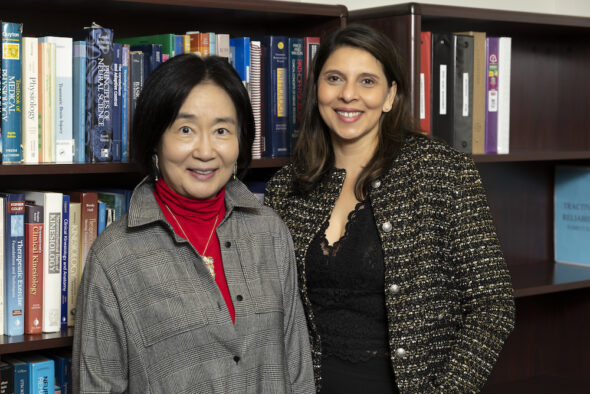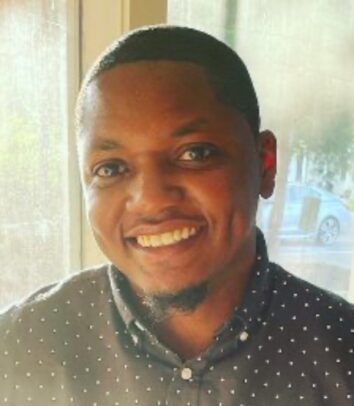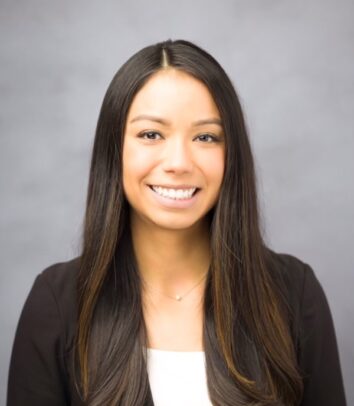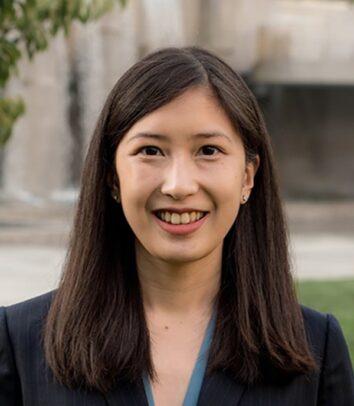Making the invisible visible: New center explores equity in dementia care and caregiving

As the baby boomer generation reaches old age, the number of people with Alzheimer’s disease and types of dementia is expected to skyrocket. Without effective treatment or cure, these diseases will place uneven burden on individuals and families in underrepresented populations, including ethnic, racial, gender and socioeconomic groups who have received less attention in aging research.
A new program at the University of Illinois Chicago called the Center for Health Equity in Cognitive Aging will address these gaps by funding research, mentoring early-career faculty and connecting UIC to a national network in this area. Uniquely, the center will focus not just on the care that persons with dementia receive, but also the experiences and challenges of their care providers, including family members, paid caregivers and health care professionals.
En español
The center is co-directed by Naoko Muramatsu of the School of Public Health and Tanvi Bhatt of the College of Applied Health Sciences, and it is based in the UIC Institute for Health Research and Policy.
“Cognitive aging is invisible, because it largely happens in the brain, and so is caregiving, because it happens in the home and in private spaces,” said Muramatsu, professor of community health sciences. “Making the invisible visible is critical for people to recognize and address inequity in the health and well-being of people with or at risk for dementia. It’s important for researchers from diverse backgrounds and perspectives to uncover diversity in lived experiences of people deeply affected by the progression of the disease.”
Funded by a $3 million grant from the National Institute of Aging, the Center for Health Equity in Cognitive Aging is the newest of 18 Resource Centers for Minority Aging Research across the U.S., and the first in a Midwestern urban area.
“This network means that we can provide opportunities not just within UIC, but also link scientists to the outside world so they have access to leaders in the field from all over the nation,” said Bhatt, professor of physical therapy and rehabilitation sciences. “Further, this center’s strength lies in amalgamating behavioral health promotion and population-science approaches for advancing dementia care and caregiving research.”
On campus, the center will establish a team-based research community that focuses on understanding the social, environmental and behavioral factors that lead to inequities in Alzheimer’s disease and other types of dementia. The work will also promote diversity through developing an academic workforce of researchers from underrepresented backgrounds and supporting their research in these populations.
The center’s Scientist Program accepted three pilot projects in its first round, and the second call for solicitations is open until Jan. 31. The opportunity is available to researchers from all corners of UIC, the co-directors said.
“This center is about social and behavioral science research on aging and that needs to include all of our departments and colleges,” Muramatsu said. “This is an opportunity for us to really work with all parts of campus and engage researchers who may be doing aging research without knowing it. That is the real strength of UIC; it has everything.”
Uncovering the links between culture and cognitive health
The first cohort of funded researchers and pilot projects demonstrates the critical work that the Center for Health Equity in Cognitive Aging hopes to accomplish.

Kelechi Ibe-Lamberts, clinical associate professor of community health sciences in the School of Public Health, considers himself a “1.5-generation” Nigerian American, growing up in Africa before moving to the U.S. at age 8. That life experience informs his research interest on individuals who feel their identity draws from the cultures of their former and current countries.
His study will combine focus groups and surveys of caregivers for people with dementia, gathering information to build interventions tailored and beneficial to these transnational communities. And by tapping into the national network of aging research centers, he hopes the results will propagate broadly.
“I would love to be able to use this information to inform physicians about some of the barriers and the uniqueness of transnational African immigrants in their practices and identities and how it plays a role in their day-to-day life and actions and choices,” Ibe-Lamberts said. “I want to use this study to be a springboard for pushing the agenda of improving the aging resources for African immigrants that are here in the U.S., especially those that are planning to stay here and potentially die here.”
Jennifer Kwok, assistant professor of health policy and administration in the School of Public Health, will draw upon her background in economics to examine the health and financial burdens on spouses and other caregivers. She will use datasets from the Health and Retirement Study, the Centers for Medicare and Medicaid Services and the U.S. Census Bureau to analyze this population and characterize the potential needs of caregivers to help inform policies.
“With the aging population in the U.S., one of the things we don’t really know all that much about is the impact of cognitive impairment and dementia on spouses, children and other family members, and how that varies across different racial and ethnic minority populations,” Kwok said. “Having this information will be useful for us to figure out how we can help people with caregiving.”

Dalmina Arias, clinical assistant professor of occupational therapy in the College of Applied Health Sciences, will use her pilot funding to expand an existing intervention to new populations. IPROACTIF, a primary care-based program developed by Mansha Mirza at UIC, connects older adults with chronic health conditions such as hypertension and diabetes with occupational therapists that assess their home environment, needs and goals to try and prevent hospitalization.
Arias will adapt the program for Spanish-speaking patients and families, going beyond translation to tailor strategies for cultural differences around food, family caregiving and use of health care resources. She credits her mentors, including those within CHECA, with making this ambitious work feel possible.
“I can’t emphasize enough how valuable it is having these connections and this opportunity so early in our careers,” Arias said.
That echoes the mission of the program as it begins its first five-year term, the co-directors said.
“For assistant professors wanting to pursue scholarship, there are so many barriers, and without proper mentorship they cannot launch themselves into research careers,” Bhatt said. “We want to build an environment of shared mentoring and advancing science in this field.”
The Center for Health Equity in Cognitive Aging is supported by the National Institute on Aging of the National Institutes of Health (P30AG083255). For more information and to get involved, visit the Center for Health Equity in Cognitive Aging website.

